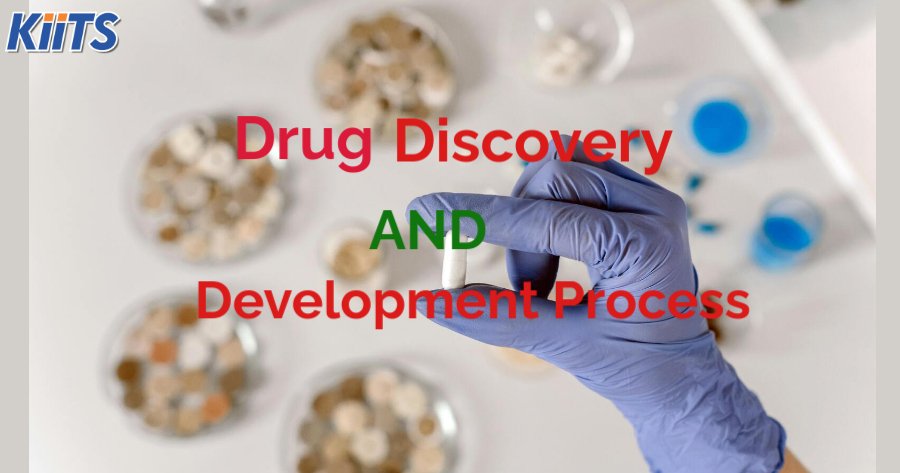The process of bringing a new drug to market is intricate and indispensable in today’s fast-paced world of medicine. Every year, scientists take a challenging route to discover and develop treatments that can improve, extend, and save lives. Before drugs reach pharmacy shelves or the hospital, though, they must first undergo a strict, multi-step process referred to as drug discovery and development.This is where scientific knowledge is translated into practical therapies for complex disease targeting. The journey has many stages-from very origins in the laboratory as just an idea or a biological target and through extensive research, testing, and refinement, regulatory approval, and finally into patients’ pockets-it’s a process that works with precision, expertise, and relentless pursuit of safety and efficacy.
Every new drug brings hope that can make more than just the alleviation of symptoms but the treatment of root causes of diseases. Such insight into this process makes us see the painstaking work put into creating these therapies. In this blog, we will walk through all the stages-from initial research and preclinical testing to clinical trials and launch. The challenges faced by researchers and advanced knowledge which they utilize in their endeavors to move forward the future of drug development will also be covered.
Let’s Dive into the process of Drug Discovery and Development
Stage 1: The Process of Drug Discovery
India finds its drug discovery basis from the research of public and private sectors. And key players behind this movement are CSIR, Indian Institute of Chemical Biology, and NIPER. Here they underline their search towards compounds related to prevalent diseases in India. The Indian pharmaceutical companies are investing in discovering unique therapeutic agents and conducting extensive screening to find promising drug leads with growing support from the government’s “Make in India” initiative. For example, it is emphasized that efforts toward plant-based and traditional medicine research allow India to leverage its rich biodiversity in the drug discovery process, making it singular in the world scenario.
Stage 2: Preclinical Testing
Preclinical testing in India is an important stage that ensures drug safety and effectiveness before it is administered to humans. The conducting authority in this regard is the Central Drugs Standard Control Organization (CDSCO). According to CDSCO, any drug developer has to conduct all in vitro and animal studies prior to exposing his formulation on human subjects. Many of the Indian companies have already started collaborating with Contract Research Organizations to maintain cost-efficiency and make it an efficient option for the study. In addition, very crucial is the aspect of ethics, as India is stringent on animal welfare protocols taken in laboratories to ensure humane usage. At this stage, results help Indian drug developers go ahead to clinical trials confidently, since they are assured that the compounds for the drug are safe.
Stage 3: Clinical Development
Because of its diversified population and infrastructural costs, India has become one of the biggest destinations for clinical trials around the world. This diversification provides researchers with adequate genetic backgrounds to test drugs, which enhances the knowledge about drug efficacy and side effects. The Indian regulatory body, by the CDSCO and the Indian Council of Medical Research (ICMR), made strict regulations on the clinical development process to ensure transparency and safety in every stage of the trials. Indian companies will conduct clinical trials with strong adherence to protocol, especially as far as immunity responses are concerned such as anti drug antibodies so the drugs can emerge as both safe and efficient.
Stage 4 : Regulatory Approval And Market Launch
India has more attention when it is put forward because through this one may have space for the reporting of side effects even after the release of the marketed drug so there is the patients’ safety in all possible ways.
Drug approval is regulated in India through the CDSCO, accompanied by the Drug Controller General of India (DCGI), who reviews the clinical trial data and grants approval according to consideration in terms of safety and efficacy. The Indian regulatory authorities adopt policies that expedite approvals of essential medicines so that drugs can reach the market as early as possible once they meet some of the urgent health needs. India has demonstrated that it can accelerate approvals of COVID-19 vaccines under a fast track approach. Once out in the market, drugs are watched for rare adverse drug reactions. The authorities check on manufacturers to ensure they adhere to quality and safety norms and therefore continue to bank on India’s reputation as a trusted pharmaceutical provider.
Challenges and Innovations in Drug Development
Though India is very well recognized as a generics manufacturing hub, it poses a higher cost and longer timelines for drug discovery and development along with infrastructure constraints. But recent developments such as Biotechnology Industry Research Assistance Council (BIRAC) and engagement with international collaborations are starting to help alleviate these inefficiencies. Innovations such as artificial intelligence in drug discovery, where faster predictions allow for quicker identification of potential drug candidates, and personalized medicine, where the treatment is precisely tailored to meet the needs of an individual, are gaining traction in India, too. The way forward in drug discovery, uniquely Indian in its approach-blending traditional medicine with the latest research-is expected to present a rich wholesome perspective for this country’s future in drug discovery, one that will redefine global health.
Conclusion
This process of drug discovery and development improves significantly in India with government initiatives and private investment. Each stage-from discovery and preclinical testing to clinical development and market launch-has to pass strict standards relating to international safety and efficacy tests. As India moves forward to further develop its capabilities, the nation stands to not only improve health outcomes at home but also take a pivotal role in addressing global health challenges. With ongoing innovation and regulatory support, the landscape of drug discovery and development in India will emerge as one of the very important players in future medicines.








